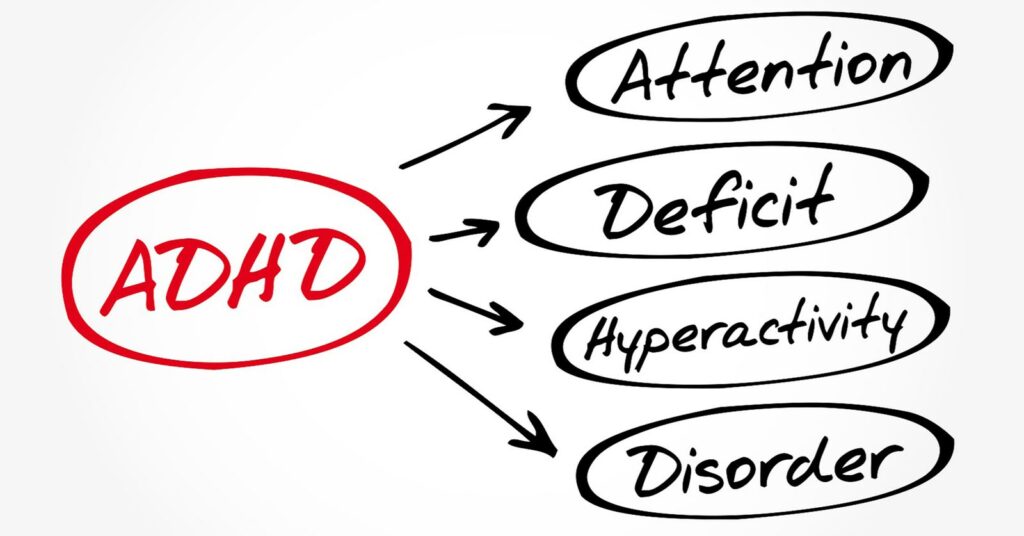
ADHD or attention deficit hyperactivity disorder is a common childhood disorder. It affects how you pay attention, your ability to sit still, and how you control your behavior.
ADHD can happen in children and teens and even last into adulthood. It is usually detected during a child’s early school years when they begin having problems paying attention.
Symptoms of ADHD
It is usual for children to have trouble focusing or behaving sometimes. However, children with ADHD don’t grow out of such behavior. Sometimes the symptoms could be severe and could cause trouble at school, with friends, or at home.
Children with ADHD may also perform poorly in school and suffer from low self-esteem.
A child with ADHD might:
- daydream a lot
- forget or lose things a lot
- squirm or fidget
- talk too much
- make careless mistakes or take unnecessary risks
- have a hard time resisting the temptation
- have trouble taking turns
- have difficulty getting along with others
(CDC 2020)
Types of ADHD
ADHD could be of 3 types, depending on the types of symptoms present strongest in the individual. The three subtypes of ADHD are:
Predominantly inattentive
A child who shows patterns of inattention may have trouble focusing on tasks at home or in school. They may make careless mistakes, have difficulty following instructions, lose things, and be easily distracted.
Predominantly hyperactive or impulsive
A child showing a pattern of hyperactive and impulsive symptoms could always be fidgety, squirmy in the seat, or talk too much. They may have difficulty waiting for their turn and could interrupt others’ games or activities. They may be on the move always, running or climbing even when inappropriate.
Combined
In the combined type of ADHD, a mix of both inattentive symptoms and hyperactive/impulsive symptoms are seen.
Causes of ADHD
Experts are not sure about what causes ADHD. However, there may be several reasons that could lead to it. Here are some of them.
- Genes: ADHD tends to run in families.
- Chemicals: Brain chemicals in people with ADHD may be out of balance.
- Brain changes: Areas of the brain that control attention are less active in children with ADHD.
- Poor nutrition, infections, smoking, drinking, and substance abuse during pregnancy: These things can affect a baby’s brain development.
- Toxins, such as lead: They may affect a child’s brain development.
- A brain injury or a brain disorder: Damage to the front of the brain, called the frontal lobe, can cause problems controlling impulses and emotions.
(Bhargava 2020)
It’s important to note that sugar, too much TV, food allergies, or a stressful home life do not cause ADHD.
Diagnosis
Diagnosing if a child has ADHD may sometimes be challenging as its symptoms may be similar to anxiety, depression, or learning disabilities. There is no test to diagnose ADHD. Doctors may use the American Psychiatric Association’s guidelines and take the child’s history from the parents. This will help them understand how long the child has been having the symptoms. A primary care doctor could also refer the child to a specialist like a psychologist or a psychotherapist.
Treatment
In most cases, the best treatment for ADHD is to use behavior therapy and medication. For children around the ages of 4 to 5 years with ADHD, the recommended first treatment line is behavior therapy. It’s essential to monitor closely, follow up, and make necessary changes to the treatment plan along the way.
How to Stay Healthy
It’s essential for children with ADHD to have a healthy lifestyle along with behavior therapy and medication. This can make it easier for the child to deal with the symptoms of ADHD. Here are some helpful tips:
- Ensure your child is eating plenty of fruits, vegetables, whole grains, and lean meats.
- Encourage your child to stay active by participating in some physical activity.
- Limit the time spent on electronic devices such as phones and TVs.
- Ensure your child is getting adequate sleep.
- Try to maintain a schedule and routine each day.
Children and adults with ADHD may find it tough to keep up with everyday life challenges without treatment. They may have trouble learning or find it tough to develop their social skills. ADHD could also lead to low self-esteem or conflicts with others around them.
Keeping track of symptoms and having regular checkups with your doctor is essential. The right diagnosis and treatment can make a significant difference to the outcome and help those with ADHD lead happy lives.
Works Cited
CDC. “What Is ADHD?” Centers for Disease Control and Prevention, Centers for Disease Control and Prevention, 23 Oct. 2020, https://www.cdc.gov/ncbddd/adhd/facts.html.
Bhargava, Hansa D. “ADHD: Symptoms, Types, Testing, and Treatment.” WebMD, WebMD, 8 June 2020, https://www.webmd.com/add-adhd/childhood-adhd/attention-deficit-hyperactivity-disorder-adhd.





